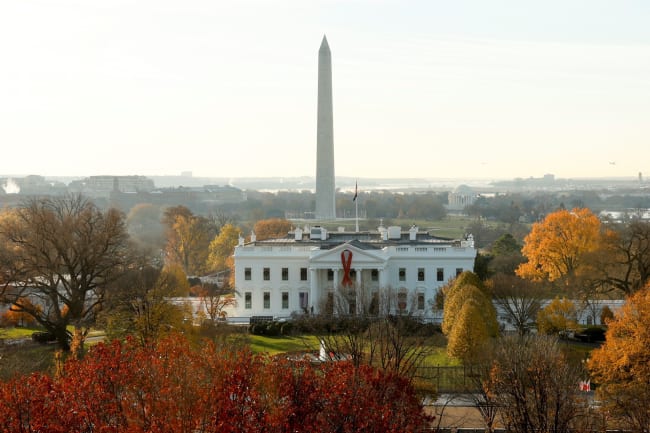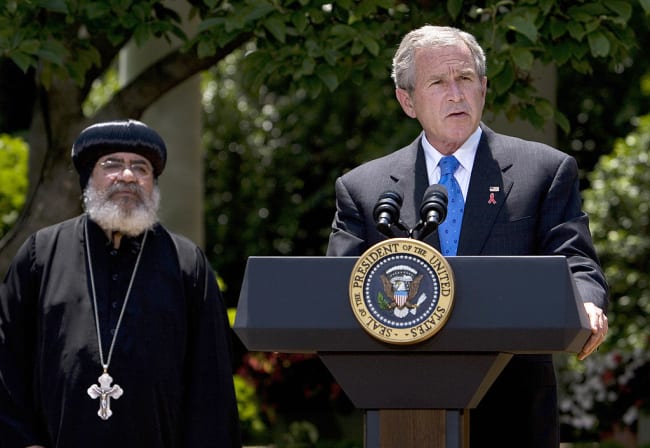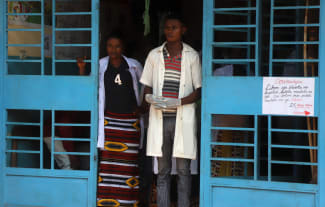This year, the U.S. government's signature global health effort in the fight against HIV is up for congressional reauthorization.
The President's Emergency Plan for AIDS Relief, or PEPFAR, is broadly regarded as one of the most successful efforts in global health history, reporting that it has saved an estimated twenty-five million lives since the Bush administration created it in 2003. Our research shows that PEPFAR has also generated many positive spillover effects, such as large reductions in maternal and child mortality and significant increases in childhood immunization rates.
The program has generally enjoyed strong bipartisan support, and President Biden called for its reauthorization in his recently released budget, but it's unclear whether Congress has the bandwidth to act this year. Advocates and some congressional and administration leaders are pushing for a "clean" reauthorization, which would extend the bill without otherwise altering it. But in today's hyperpartisan environment, more divisive issues, such as proposals for more expansive changes, could crop up and derail the process.
Absent reauthorization, the PEPFAR program would continue as long as Congress continued to appropriate it funding. That's because the program and its major components — including the State Department's Office of the Global AIDS Coordinator and U.S. participation in the Global Fund to Fight AIDS, Tuberculosis and Malaria — operate largely under permanent authorities of U.S. law.
It's unclear whether Congress has the bandwidth to act this year.
Some requirements, though, are time bound and would sunset without Congress's reauthorization. We've identified eight such provisions that govern how HIV funding is allocated, how the United States contributes to the Global Fund, and reporting or oversight on program activities.
Much would be gained by reauthorizing a federal program, even if not required for the program to continue. The process of reauthorization could direct federal programs to adapt to current circumstances, outline oversight or reporting measures for program activities that reflect more recent challenges and opportunities, and more generally send an important signal of congressional support. This itself could serve as a safeguard for PEPFAR's continued funding in light of the likelihood of heightened scrutiny in the House for programs without a current funding authorization. Regardless of what happens with reauthorization, however, the issue of PEPFAR funding levels will take center stage in the coming months as Congress debates this year's budget.
In parallel, the administration and Congress are debating other aspects of PEPFAR's future, which Congress might seek to address, including the program's role in pandemic preparedness and response. In December 2022, Secretary of State Anthony Blinken announced plans for a new Bureau of Global Health Security and Diplomacy that would merge the Office of the U.S. Global AIDS Coordinator and Health Diplomacy and the Coordinator for Global COVID-19 Response and Health Security, among others, under the leadership of current State Department official Dr. John Nkengasong.
Policymakers could also weigh broader questions about how PEPFAR and other vertical programs focused on single diseases could best contribute to strengthening health systems; how the program could make further inroads in the HIV epidemic without additional funding (PEPFAR's funding has been largely flat for several years); and how best to promote equity, particularly regarding populations who are at heightened risk and often face discrimination and stigma, including men who have sex with men, sex workers, transgender individuals, and people who inject drugs.
If Congress were to reauthorize PEPFAR this year, it would signal yet another demonstration of bipartisan support for the program, even in an increasingly polarized environment. If it does not, however, PEPFAR and its advocates would have to spread word, including to those living in countries who benefit the most from its support that PEPFAR will indeed continue.












